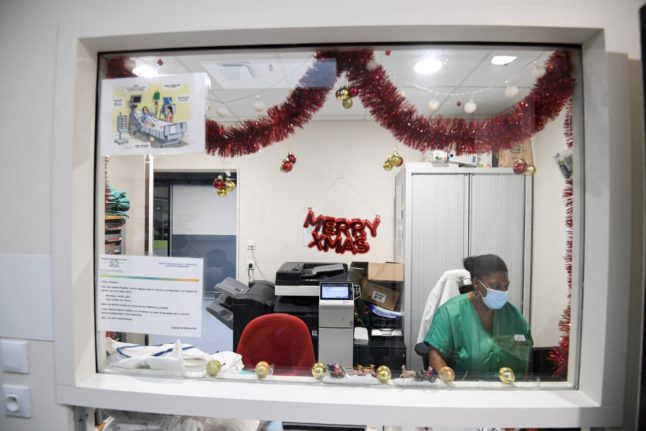Covid cases have again been on the rise in France, but there is no repeat of the ‘rule of six’ for Christmas dinners, while there are no travel restrictions or rules on vaccination.
However, Covars (the advisory body that has replaced the Scientific Council) has issued some advice on staying safe and well over the festive period – particularly for those who will be visiting high-risk people such as elderly family members.
Covars published its advice on Tuesday because of “a resumption of active circulation of Covid-19, the crossing of the epidemic threshold of influenza and an intense and early epidemic of bronchitis – as well as in anticipation of the upcoming holiday season, a source of significant inter-generational mixing”.
Mask wearing – Covars strongly recommends wearing a mask in crowded enclosed spaces, especially public transport, stating that “the generalised wearing of masks in enclosed spaces would slow the three epidemics in progress”.
The government earlier in the winter decided against making masks compulsory again on public transport, but the official advice remains to wear a mask, especially at rush hour or on crowded services.
Free masks – Covars has called for free masks to be distributed, in order to encourage mask wearing, saying: “In this period when the mask is really necessary (…) we asked the health minister to extend this free access to the whole population, the ministry is thinking about it.”
Vaccination – the committee strongly recommends Covid and flu vaccination, including second boosters which are now open to all age groups, and calls on the government to launch a new communications campaign encouraging people to get vaccinated or get a booster shot. Covars also suggested reopening vaccine centres which have now largely closed down – vaccines are now administered in pharmacies or health centres.
EXPLAINED How to get a second Covid booster shot in France
Self-tests – if you’re planning on travelling to see friends or family – especially if you intend to see anyone in a high-risk group such as the elderly, the chronically ill or pregnant women – it is advised to take a Covid test before travelling. Pharmacy testing is still widely available, but people can also use self-test kits at home for convenience.
“In order to protect the most vulnerable during the holiday season, Covars also suggests reinforced communication on self-tests. These tests should be used as close as possible to the family event,” reads the advice.
Family gatherings – Covars did not suggest putting any kind of size limit on family gatherings, and there is no warning against travel over the holiday season.
The above is advice only, and there are currently no Covid-related restrictions in place either in France or at the border. The mask remains compulsory in certain healthcare settings, but otherwise is merely advised.
Paxlovid, tests and isolation: Essential Covid information for France



 Please whitelist us to continue reading.
Please whitelist us to continue reading.
Member comments